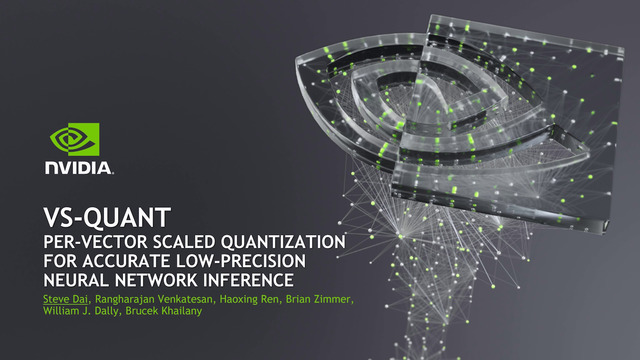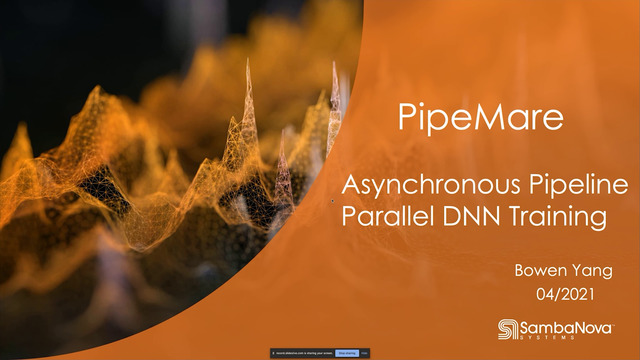Abstract:
Training Deep Neural Networks (DNN) with high efficiency can be difficult to achieve with native floating-point representations and commercially available hardware. Specialized arithmetic with custom acceleration offers perhaps the most promising alternative. Ongoing research is trending towards narrow floating-point representations, called minifloats, that pack more operations for a given silicon area and consume less power. In this paper, we introduce Block Minifloat (BM), a new spectrum of minifloat formats capable of training DNNs end-to-end with only 4-8 bit weight, activation and gradient tensors. While standard floating-point representations have two degrees of freedom, via the exponent and mantissa, BM exposes the exponent bias as an additional field for optimization. Crucially, this enables training with fewer exponent bits, yielding dense integer-like hardware for fused multiply-add (FMA) operations. For ResNet trained on ImageNet, 6-bit BM achieves almost no degradation in floating-point accuracy with FMA units that are $4.1\times(23.9\times)$ smaller and consume $2.3\times(16.1\times)$ less energy than FP8 (FP32). Furthermore, our 8-bit BM format matches floating-point accuracy while delivering a higher computational density and faster expected training times.









































